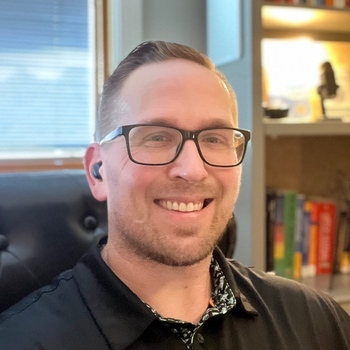
Jacob Dye
Introduction
Welcome! I am Jacob Dye, a Licensed Professional Counselor Mental Health Service Provider in the great state of Tennessee! I’ve had the honor to serve various communities in Middle Tennessee since January 2012, during that time I’ve been blessed to have a wide array of clinical experiences: Psychiatry offices, Longterm Residential Care, Community Mental/Behavioral Health, Integrated Healthcare, Addiction Centers, and Individual and Group outpatient private practice. My journey here has been an interesting one… and one that I would not wish on others; however, I am beyond humbled by the redemptive power of God to take the brokenness in my life and transform it into something that is beneficial to my clients. As Romans 8:28 states: “And we know that for those who love God all things work together for good, for those who are called according to his purpose.” Clearly, as stated above, I am a believer in God and a follower of Jesus Christ. This impacts my work in that I believe I am called to tend to the sick, the hurting, and the lost. I do this by extending grace, compassion, and unconditional positive regard to all those I work with. If you are not a believer, or you come from a different spiritual background, you are also welcome. I incorporate spiritual discussions into therapy to the level that my client wishes. So who am I as a Therapist? First and foremost, My practice revolves around the four pillars of mental wellness: Gratitude, Agency, Meaning, & Humility. My aim is to achieve this through strong evidenced based practice, and data informed treatment. As a therapist I thrive helping clients with a wide array of clinical issues, but my primary areas of interest are: -OCD (Specifically Religiously fixated ocd, Scrupulosity) -Depression -Grief -Personality Disorders -Addiction (Substance & Behavioral) -Boundaries -Assertiveness/ Effective Communication Strategies While each of these issues require their own unique approach, as does each client, generally my approach to therapy is to: 1. Identify the clients (your) Values/ Meaning 2. Identify the internal experiences that the client has been attempting to avoid 3. Identify the effective and ineffective means of avoidance 4. Identify the core beliefs that influence the clients assumptions/actions 5. Begin to build effective means of regulating strong emotions and effectively engaging with them 6. Reframe (“reword”) ineffective thought patterns As such, the styles of therapy that influence me the most are: -Cognitive Behavioral Therapy -Acceptance & Commitment Therapy -Logotherapy -Brainspotting I believe that it as an honor to sit with each and every person who enter into the therapy space. I look forward to meeting you and hearing your story.
Connect
View websiteHighlights
- Accepting new clients
- Available on nights
- Offers free consultation
- In-person & telehealth appointments
- Accepts online payments and insurance
Licenses
-
LPC-MHSP #3020 (TN)
Specialties
Additional focus areas
Treatment Approaches
Population focus
Appointment types
- Individuals
- Couples
- Groups
- Classes
- Coaching
Communities
-
Military/Veterans
-
Christian
-
Politically Conservative
Age groups
-
Teenagers (12-18)
-
Young Adults (18-24)
-
Adults (24+)
-
Elders (65+)
Languages
-
English
Faiths
-
Christian
Free intro call available
Pay with insurance
-
Aetna
-
Cigna
-
BlueCross and BlueShield
-
Carelon Behavioral Health
-
Quest Behavioral Health
-
United Healthcare
Pay out-of-pocket
-
Individual Therapy (in-person) $160
-
Virtual Therapy $100
-
Phone Therapy $90
-
Groups/Classes $35 - $50
-
Individual Supervision $80
-
Triadic Supervision $60
-
Group Supervision $50